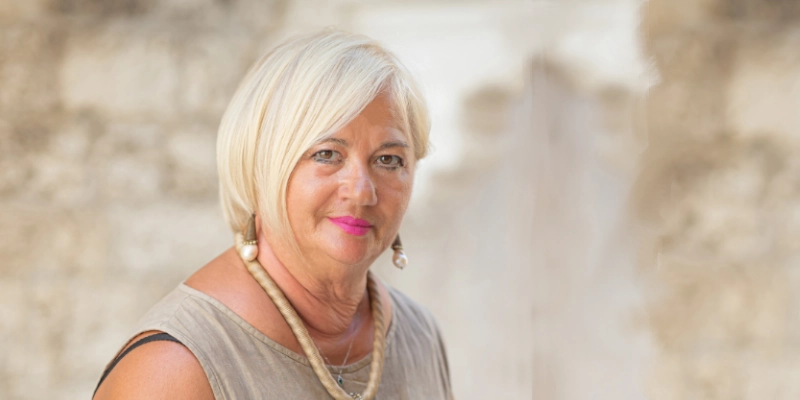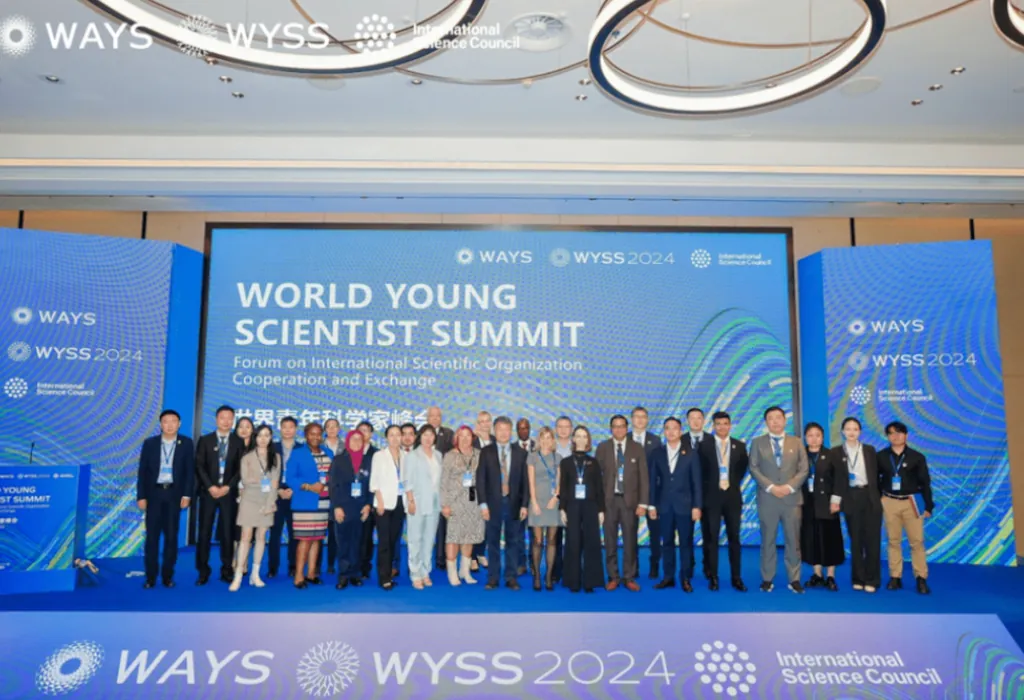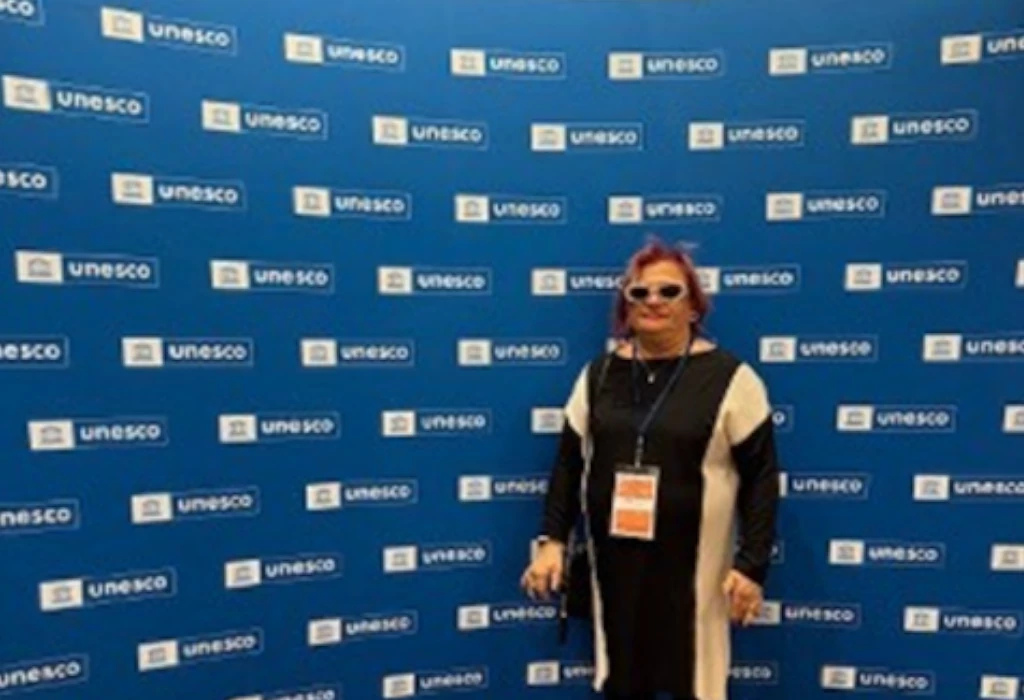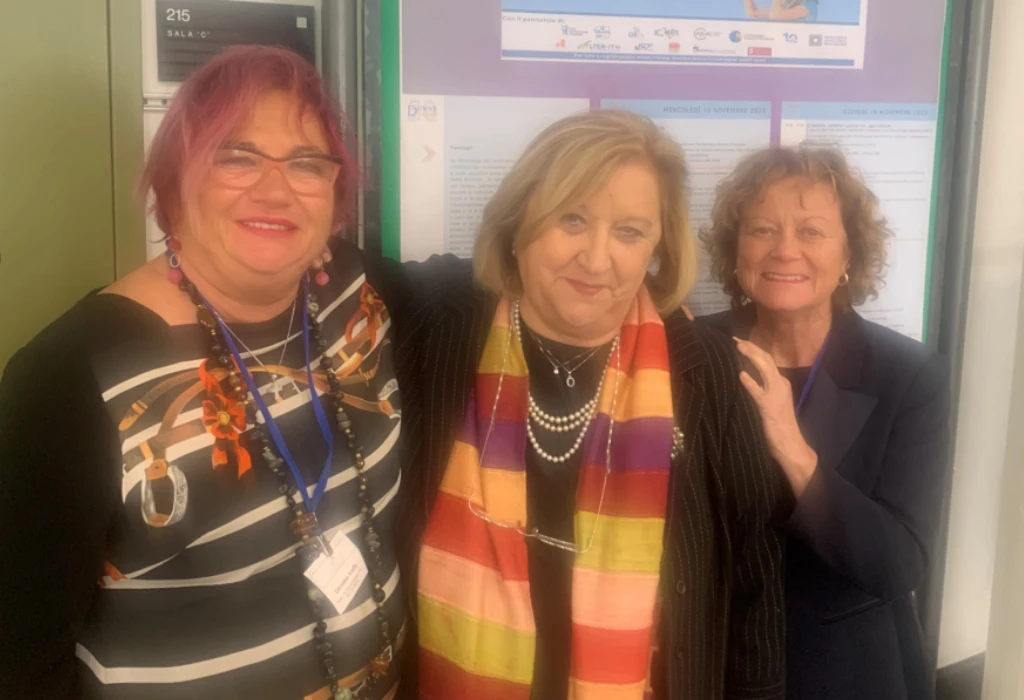Empowering Researchers and Promoting Gender Equality: A Conversation with GIANNA Avellis

Gianna Avellis, Chair of the International Consortium of Research Staff Associations (ICoRSA) and founder of the Italian Research Staff Association (ITARSA), has dedicated her career to advancing gender equality, supporting researchers, and fostering collaboration at both national and international levels. In this interview, she shares her work in promoting diversity, gender equality, and innovation, as well as the impact of ICoRSA and ITARSA on global research communities.
Q1, Can you please tell us about your role in ICoRSA?
I have been serving as the Chair of ICoRSA since 2022 and previously held the position of Vice-Chair. Since the association’s foundation by Dr Gordon Dalton in 2009 (Dr Dalton worked at UCC, but now works at Plocan University, Gran Canaria, Spain).I have been involved and have brought in my expertise in gender equality in particular. ICoRSA acts as an umbrella organisation, bringing together various national Research Staff Associations (RSAs) to address shared challenges faced by researchers worldwide.
In 2023 I decided to found a new Working Group on Gender Equality in ICoRSA to address the issues related to women researchers’ careers, and more in general the issues of women in STEM and the digital divide.
Q2, What inspired you to establish the Italian Research Staff Association (ITARSA)?
ICoRSA consists of several Research Staff Associations in Europe and outside, however it lacked a Research Staff Association in Italy. In December 2021, I also decided to establish a new national Research Staff Association, Italian Research Staff Association (ITARSA - www.italianrsa.org). I am currently serving as its Chair, and the association consists of more than 60 members. ITARSA was founded to provide help, advice and a voice for researchers from academia and industry, both within CNR and Italian Universities, and nationally in several associations.
More specifically, researchers working in associations, universities and research centres feel that there is no voice to represent them and that many of the problems that are unique to them have not been properly identified and addressed.
Q3, How does ITARSA collaborate with ICoRSA and other international organizations?
ITARSA decided to adhere to ICoRSA to reflect the wider objectives of the international consortium and to participate in its EU projects. ITARSA works with ICoRSA and other relevant bodies at national and international level, such as UNESCO, WAYS, Eurodoc, MCAA, EPWS to help address these concerns.
ITARSA was set up by and is run by researchers on an entirely voluntary basis. Since February 2022, the international umbrella RSA, ICoRSA, has been supporting us in our administrative tasks. ITARSA will strive to equally represent research staff at all stages of their careers, and from all our universities, research centres, industries, and associations.
Q4, How do you represent ICoRSA at international conferences, and what kind of impact has that had?
As Chair of ICoRSA, my role is to promote and disseminate our association both within Europe and internationally by participating in and being invited to several conferences. For example, I represented ICoRSA at the World Young Scientists Summit (WYSS) in Wenzhou, China, last year. I also represented ICoRSA in the Women20 (W20) delegation at the CSW69 conference at the United Nations Headquarters in New York, as ICoRSA is registered as an NGOCSW69 association. Additionally, I was invited to the UNESCO ICNGO International Conference of NGOs in Paris, where I presented ICoRSA in the section dedicated to NGOs.
 Photo: Gianna Avellis at the WYSS2024
Photo: Gianna Avellis at the WYSS2024
Q5, What was ICoRSA’s involvement in the 2024 World Young Scientists Summit (WYSS)?
Last year, I participated in the WYSS in WENZOU, China, an event co-hosted by the China Association for Science and Technology (CAST) and the Zhejiang provincial government. WYSS has successfully held five sessions, connecting global scientists and promoting young engagement in science governance.
This year’s theme, Youth Innovation: Fostering New Quality Productive Forces, featured diverse sessions on science diplomacy, communication, and international cooperation, which aim to establish a vibrant platform for young scientists to exchange ideas, learn from one another, realize their ambitions, and fulfil their dreams.
ICoRSA participated in the Forum on International Scientific Organisation Cooperation and Exchange, supported by the International Science Council, which focused on empowering young scientists in global science governance.
ICoRSA presented its vision and mission in the "Impact Case Studies: Young Academies across Asia and the Pacific" session, as well as past and current EU projects and the new Working Group on Gender Equality. The presentation received positive feedback from the public.
Q6, What is your role within the Women20 (W20) engagement group of the G20?
As Chair of ICoRSA, I am representing the organisation in the Women20 (W20) engagement group of the G20. My role involves actively participating in W20 vents, contributing to discussions and initiatives, and making policy recommendations on gender equality to be included in the final G20 Declaration.
At CSW69 in New York, I attended several sessions that coincided with the W20 agenda, such as AI and gender equality, financial literacy, and leadership of women. During the W20 Kick-off Meeting, I strongly emphasized the need not only to craft strong policy suggestions but also to design specific Action Plans that assess and maintain their impact following the release of the G20 Declaration. This discussion was vital in determining the W20 South Africa Presidency's strategic priorities and carrying forward the legacy of earlier W20 summits.
My engagement is centred on ensuring that technological advancements and policy frameworks integrate gender equity and inclusion at every level.
 Photo: Gianna at the UNESCO International Conference of NGOs
Photo: Gianna at the UNESCO International Conference of NGOs
Q7, Could you tell us more about ICoRSA’s participation in the UNESCO International Conference of NGOs?
At the conference, I presented ICoRSA in the NGO HUB: Sharing Experiences from around the World – an open space for civil society to present their experiences, exchange ideas, and network for future collaboration. I received positive feedback from my presentation on ICoRSA from the attending NGOs and made several contacts with other NGOs interested in the same topics as ICoRSA. I presented mainly the Vision and Mission of ICoRSA, along with the work of ICoRSA inpartnership with policy organizations such as ISE, ISC, UNESCO, EURODOC, MCAA, YAE, YGA, and collaborations on joint projects with them, such as the OPUS and SECURE EU projects, and the organization of several events, such as the World Science Forums WSF2016, WSF2019, and WSF2024, as well as the presentation of all the EU past and ongoing projects.
Q8, Could you tell us about ICoRSA's contribution to the Ocean Decade Book Series?
I contacted Teresa Kennedy to include ICoRSA in the Ocean Decade Task Group, contributing to the Springer Nature 3-Volume Ocean Decade Book Series, edited by Teresa J. Kennedy. The series, Ocean Literacy: The Foundation for the Success of the Ocean Decade, aims to deepen understanding and engagement with the Ocean through transformative approaches. This global collaboration includes 252 authors from 40 countries. The diversity of perspectives reinforces the shared global responsibility for fostering a more Ocean-literate society.
The series explores Ocean Literacy across three volumes. Each volume contributes to a comprehensive framework for advancing Ocean Literacy. Each chapter in all three volumes presents key findings, recommendations, and resources for further research, providing readers with actionable insights. Together, these volumes examine the role of Ocean Literacy in addressing the Ocean Decade’s societal outcomes and challenge areas, bridging the gap between scientific knowledge, public understanding, and collective action.
ICoRSA contributed to Chapter Four in Volume III, titled Empowering Communities for Ocean Sustainability: ICoRSA’s Perspective on the Importance of Community Engagement and Stakeholder Involvement in Marine Initiatives. This chapter, authored by Giovanna Avellis, Gordon Dalton, UCCRSA Chair, Dr Rosarii Griffin, Erna Karalija, Dannie O’Brien, and Silvia L. Vilches, explores the role of local community engagement, sustainable governance, and participatory research in marine sustainability. It emphasizes the importance of community involvement in ocean stewardship, highlights the PHAROS project as a model of community-driven initiatives, and offers practical recommendations for integrating community engagement into governance.
Q9, Could you tell us about your current research activity?
I am also a researcher in the ICoRSA EU MUSICA project. Together with the project partners, I am designing and running a self-assessment tool for responsible research and innovation, based on five pillars of the MUSICA project: open access, gender equality, ethics/research integrity, public engagement, and science education.
I am currently the Leading Researcher in ICT at InnovaPuglia SpA, c/o TECNOPOLIS SCIENCE PARK in Italy, with extensive experience in EU projects on oftware Engineering, Multimedia Educational Software, and Mobile Telecommunications. I have also been a Marie Curie Fellow at Imperial College, London, UK. I have managed several European projects and served the EU Commission as an independent expert evaluator. My current research interests are in Gender Equality and Artificial Intelligence, particularly investigating Gender Inclusive Technologies, including AI.
Q10, Beyond ICoRSA, which other networks and initiatives are you involved in?
Currently, I am Vice-President of the Italian Women Innovators and Inventors Network (ITWIIN APS - .www.itwiin.oeg). I am a member of the Marie Curie Alumni Association (MCAA www.mariecuriealumni.eu) where I founded a Gender Equality and Diversity Working Group, which I chaired for the last three years. I am also a member of Donne&Scienza and CREIS, and I serve on the Advisory Board of the Italian CNR Observatory on Gender and Talents (GETA).
Q11, Why do you think it is important to address gender equality in research and researchers’ careers?
I think that Gender Equality is very important to address in research and researchers’ careers, as demonstrated by the “leaking pipeline” phenomenon in women researchers’ careers, where at the beginning of the research career (degree, PhD, early researchers) women are often more numerous than men in academia, and then at more advanced positions such as senior researchers, assistant professors, and full professors, the number of women drops dramatically. Several reasons include work-family balance, caregiving responsibilities for children and elderly relatives, and last but not least, the glass ceiling problem: women find it more difficult to access apical positions in academia as well as in industry.
We explored and investigated the phenomenon of the “Gender Gap and Barriers to Researchers’ Career of Women in STEAM” during a workshop at the University of Bari in 2022, organized by ICoRSA, ITARSA, the Marie Curie Alumni Association Gender Equity Inclusion and Diversity (GEDI) Working Group, and the MCAA Italian Chapter. Several viewpoints were shared during this workshop, such as the impact of hidden discrimination, gender stereotypes in STEAM, intersectionality, and early educational biases that discourage girls from pursuing careers in science and technology.
Another workshop, organized by ITARSA, ICoRSA, InnovaPuglia, and the University of Bari, investigated the gender gap in ICT and AI at TECNOPOLIS Science Park in 2023.
“Women for Building a World of Peace” is the latest workshop, held in 2024 and organized by the University of Bari, ITARSA, ICoRSA, and MCAA. It analyzed various aspects and roles of women in peacebuilding processes.
Q12, Why do you think the UCCRSA is important for researchers locally?
I think that besides the national RSAs of ICoRSA, some “local” RSAs based at universities and/or in industry can support raising the voice of researchers at the policy level. For example, about their careers’ precarity. Furthermore, local RSAs can provide input to the related national RSA about the specific needs and requirements of their researchers. And vice versa, the local RSAs can help disseminate surveys, results, and policy from the national RSA level or by ICoRSA itself. Therefore, local and national RSAs are very welcome in ICoRSA!
 Photo (L-R): GIanna Avellis, Sveva Avveduto and Lucia Martinelli
Photo (L-R): GIanna Avellis, Sveva Avveduto and Lucia Martinelli
Q13, Is there anything more you’d like to add to this interview?
Yes, I'd like to speak a bit about the future of ICoRSA. As an organisation, we continue to grow and build our network of national and local Research Staff Associations (RSAs), but one of our largest challenges remains the lack of secure funding. ICoRSA is completely volunteer-driven, and membership is free to help ensure accessibility and inclusivity. But this also means that we are reliant to a large degree on project-based partnerships and the commitment of our members to keep the organisation in existence and effective.
Looking ahead, we’re eager to strengthen our involvement in new initiatives. Within the Gender Equality Working Group in ICORSA, for example, we’re planning to submit two promising project proposals: one focused on promoting STEM education in schools, and another titled “Learning for Climate”, which aims to create an interactive educational tool to help students understand and adopt sustainable behaviours.
We are also fortunate to work together on these projects with two great women: Sveva Avveduto, President of Donna e Scienza, and Lucia Martinelli, President of the European Platform of Women in Science. Both their expertise and their connections can secure the success and the funding for these initiatives. These collaborations represent the kind of forward-thinking and impactful work ICoRSA, and its partners hope to deliver.
UCC Research Staff Association
Contact us
C/O Hydraulics and Maritime Research Centre, Pouladuff Rd, Togher (UCC Internal)
